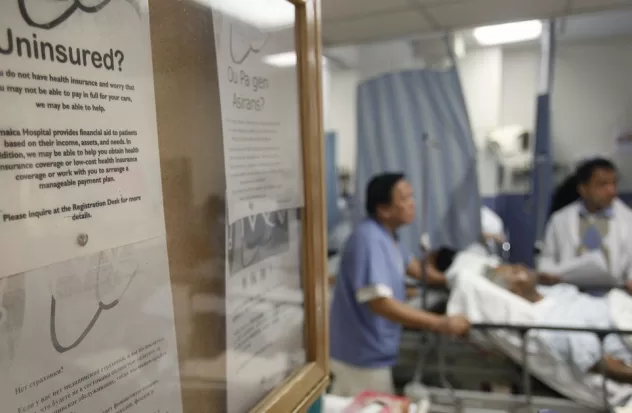MIAMI.- A proposal for amendment constitutional that would be put on the ballot in the November general election would allow the expansion of the program Medicaid in florida, which is one of 10 states in the country that have not expanded the program.
The Florida Decides Healthcare organization promotes this initiative, whose purpose is to extend coverage to people under 65 years of age with incomes of 138% or less of the federal poverty level.
The Florida Supreme Court has until April 1 to decide the language of the question that would be asked of the voters of the Sunshine State. Other reform initiatives are in the same condition, such as those regarding marijuana for recreational use and the right to abortion.
If the proposal passes the Court’s filter, the group sponsoring the campaign needs to collect 891,523 signatures and then, at the polls, obtain the approval of 60% of the voters.
Even though more than 1.4 million people would benefit from expanded Medicaid, the state Legislature also did not address expanding the program this year.
Medicaid figures
Medicaid is a program that draws on state and federal resources and provides health coverage for select categories of low-income people in Florida.
During the COVID-19 pandemic, Medicaid eligibility was expanded and states were not allowed to discharge people who no longer qualified at that time.
In Florida, the number of individuals and families applying for Medicaid assistance climbed from 3.8 million to 5.4 million between March 2020 and November 2022.
After the emergency unleashed by COVID-19, Some 979,000 people have been discharged from the program. Of that number, about 460,000 children have lost coverage and only about 49,000 have successfully migrated to Florida KidCare.
Meanwhile, Florida Governor Ron DeSantis signed a package of bills called “Living Healthy” aimed at investing $1.5 billion in health care programs. However, it is highlighted that this program does not address the problem of access to health care for those who cannot afford it.
Instead, the initiative proposes that patients can receive care faster and with less paperwork, improves services for patients with disabilities, mental health and maternal and child care, and makes it easier to seek care, while making it more difficult for hospitals to sue patients for medical debts.






